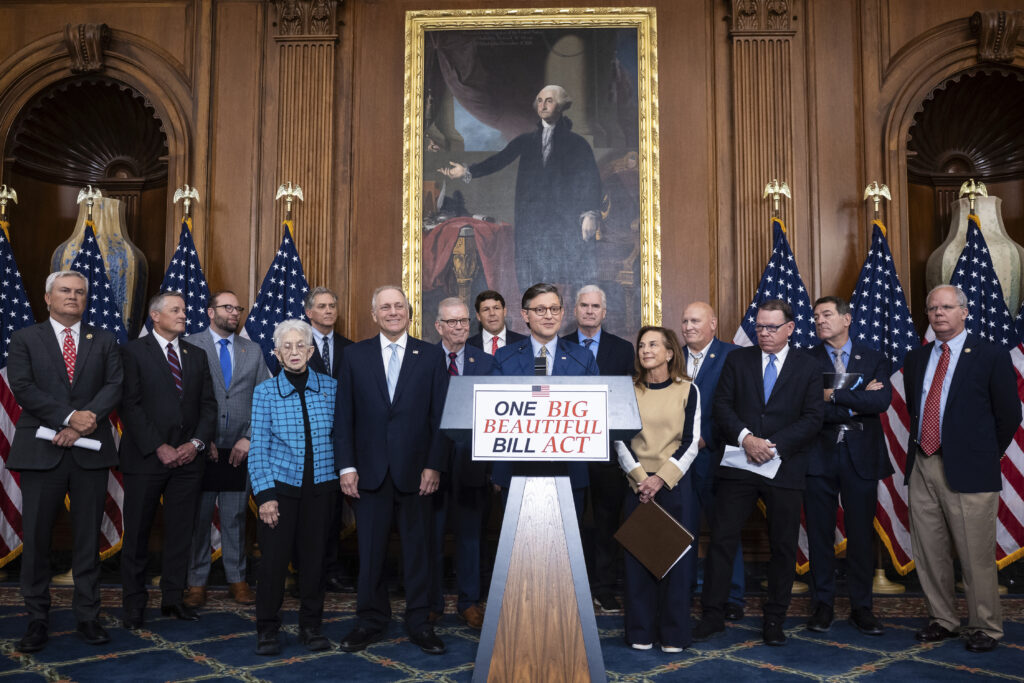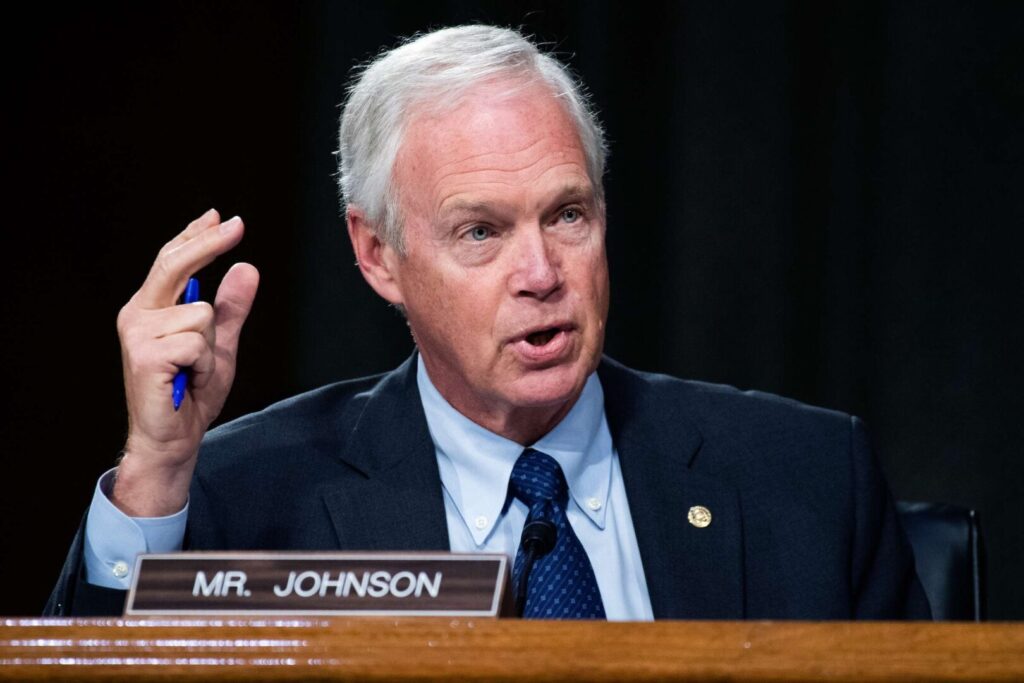The Republican-led House on Thursday narrowly approved a sweeping multitrillion-dollar tax and spending bill, sending it to President Donald Trump’s desk just ahead of his July 4 deadline.
The bill passed in a mostly party-line 218-214 vote after an intense 24-hour stretch of negotiations and internal GOP wrangling. Only two Republicans—Reps. Thomas Massie of Kentucky and Brian Fitzpatrick of Pennsylvania—broke ranks to oppose the measure.
The 887-page legislation, dubbed the “one big, beautiful bill,” bundles together a wide range of Trump’s domestic priorities. It includes extensions of the 2017 tax cuts, temporary tax breaks for tips and overtime pay, hundreds of billions in new military funding, and funding for large-scale deportation efforts. To help offset the cost, it includes sharp cuts to Medicaid, nutrition assistance programs, and clean energy initiatives.
“This is the largest legislative victory for Republicans since we took back Washington,” House Speaker Mike Johnson, R-La., said in a joint statement with GOP leadership. “Republicans in Congress have succeeded in our mission to enact President Trump’s America First agenda.”
Trump is expected to sign the bill into law on Independence Day, marking a major milestone for the administration and Republican lawmakers.
The legislation is projected to increase the national debt by $3.3 trillion over the next decade, according to the nonpartisan Congressional Budget Office. The CBO estimated that while the bill includes $1.2 trillion in spending cuts, it would result in $4.5 trillion in revenue losses. It also raises the federal debt ceiling by $5 trillion.
Critics have highlighted the political risks of the bill, especially for moderate Republicans who supported deep cuts to Medicaid and other health programs. According to the CBO, the Medicaid provisions alone could cost health coverage for roughly 11.8 million people.
“They’re just afraid of Trump and the backlash that would ensue if he called them out,” Massie told NBC News before the vote. “I’m not concerned.”
In the final stretch, Trump played a pivotal role in uniting GOP factions. According to lawmakers and aides, he held calls with key holdouts late into the night, with Speaker Johnson confirming Trump was making calls as late as 1 a.m. Thursday.
“He doesn’t really sleep a lot,” Johnson said to reporters Thursday morning. “He was personally engaged until the very end.”
Vice President JD Vance was also actively involved, attending House and Senate meetings and coordinating with lawmakers throughout the process.
“If President Trump and Vice President Vance had not engaged at the time they did, it wouldn’t have passed,” said Rep. Tim Burchett, R-Tenn., who participated in meetings at the White House on Wednesday.
Despite initial resistance, nearly all GOP holdouts eventually relented after Trump and White House officials made late-night assurances regarding future enforcement of the bill’s provisions, including phaseouts of clean energy tax credits and stricter Medicaid eligibility rules.
The vote represents a high-stakes gamble for Republicans, who now own sweeping fiscal legislation that expands the national deficit, cuts deeply into safety net programs, and reshapes U.S. tax policy ahead of the 2026 election cycle.



